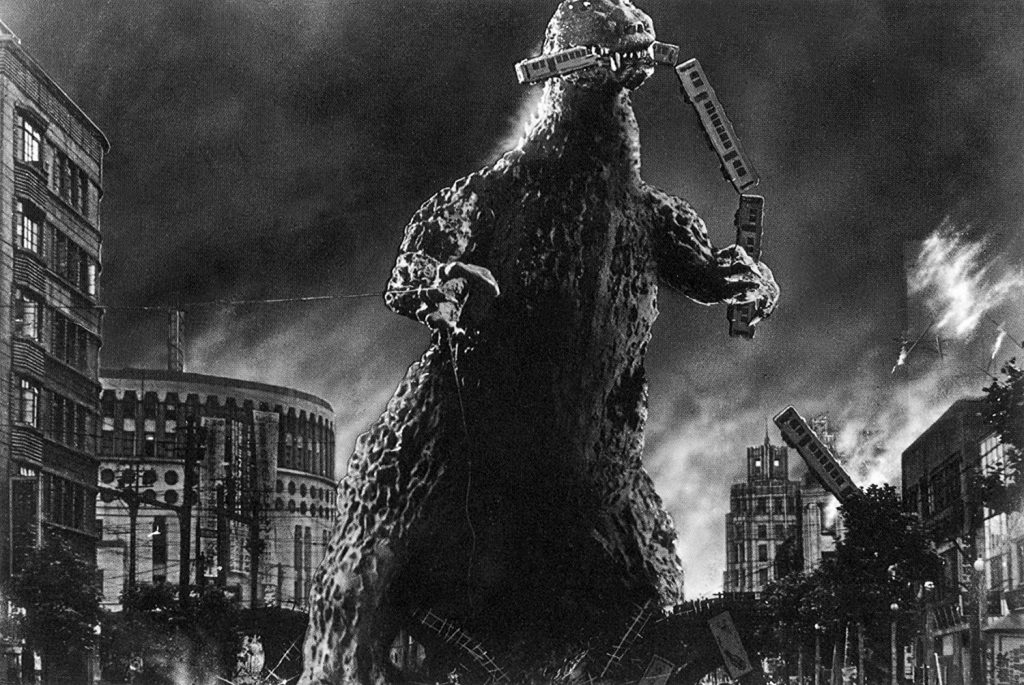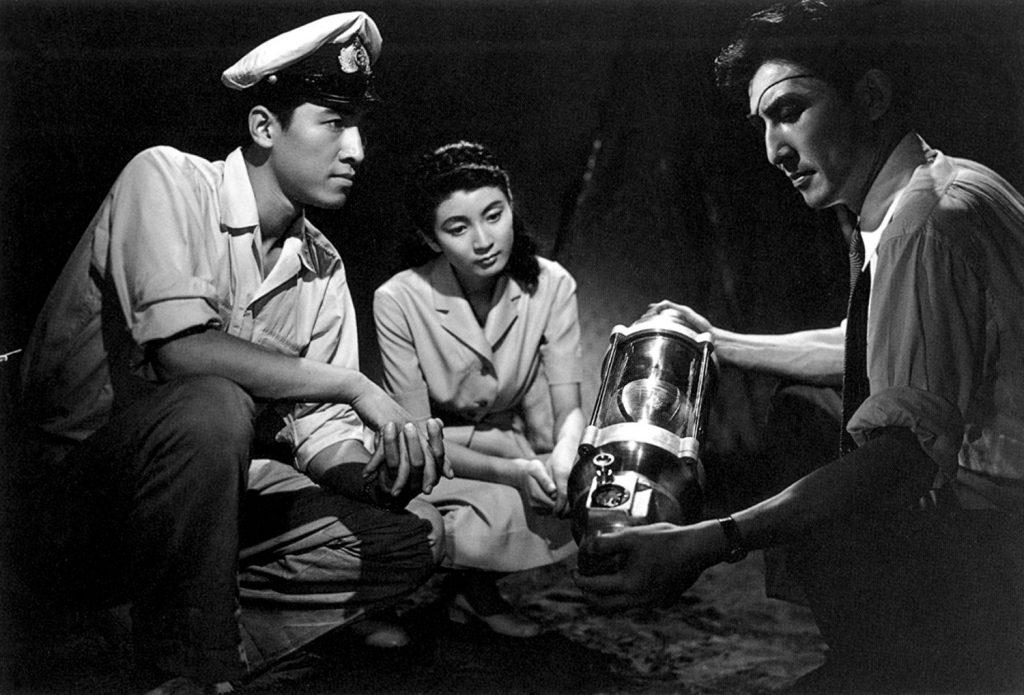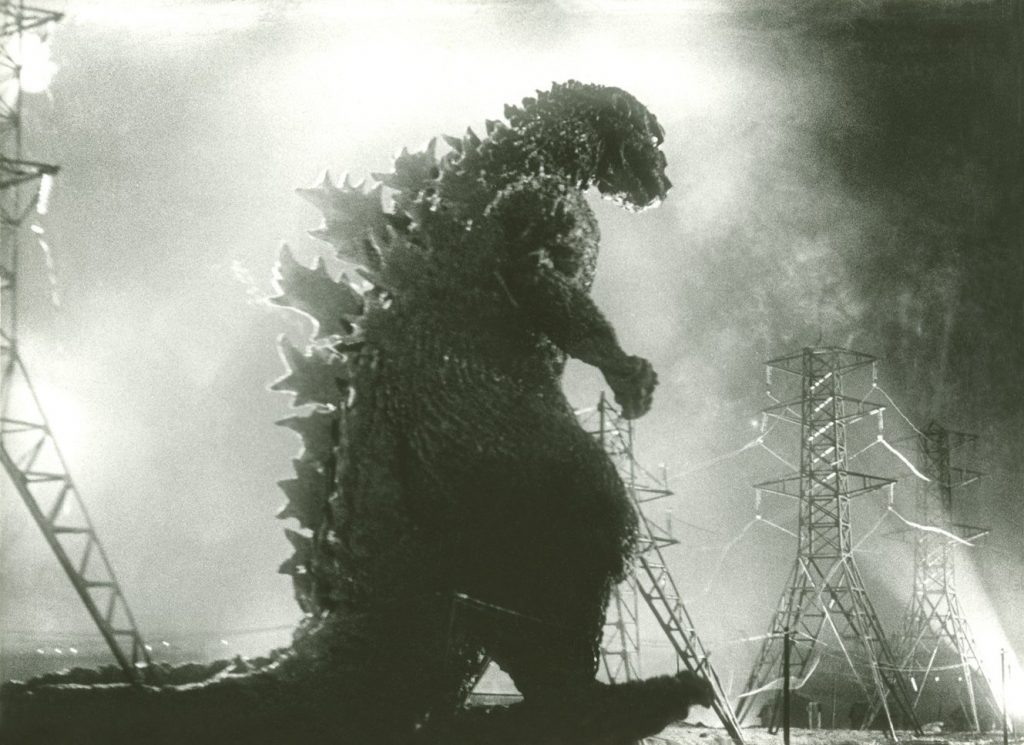Godzilla, King of the Monsters (1954) starring Raymond Burr
Godzilla, King of the Monsters — the ocean’s surface begins to boil white-hot and a Japanese freighter vanishes into the Pacific. Then, the superstitious villagers of Odo Island fear an ancient legend has come true–the legend of Godzilla! Steve Martin, an American reporter in Tokyo, finds himself trapped in the behemoth’s path of destruction.
Review
![]() For many years, I thought that Godzilla, King of the Monsters was the original Godzilla movie – and I enjoyed it. However, that was before I saw the original Gojira. And, in comparison to the Japanese original, it’s a pale imitation.
For many years, I thought that Godzilla, King of the Monsters was the original Godzilla movie – and I enjoyed it. However, that was before I saw the original Gojira. And, in comparison to the Japanese original, it’s a pale imitation.
This is not to criticize Raymond Burr, by the way. He did his part, as an American reporter doing on-the-spot reporting well. But it’s unnecessary, slows the pace of the movie, and cuts out 20 minutes of the original film as well. This cuts much of the character development of the main characters. And this reduces the emotional investment in them as well.
Editorial review of Godzilla, King of the Monsters



The first of the Godzilla movies, and the most somber and serious in tone, Godzilla, King of the Monsters was originally a 98-minute Japanese horror film, until a U.S. company bought the rights and reissued the film at its current 79 minutes, replacing sequences involving a Japanese reporter with new inserts of a dour, pipe-smoking Raymond Burr. True to the fashion of cautionary monster movies, Godzilla has arisen due to nuclear radiation–a 400-foot, fire-breathing dinosaur resurrected in Tokyo Bay–and proceeds to devastate Tokyo.
Hardly a bogus building is left unbusted, nary a toy tank unmelted, by the reptilian rogue, until scientists discover another weapon of awesome destruction that just might stop him. The special effects are impressive, with the filming done so as to mask the fact that the monster is just a guy in a rubber suit, working better here than in the sequels, where they seem to have given up any pretense to that fact, in favor of flamboyant effects and battle sequences that more often than not are delightfully, unabashedly juvenile. —Jim Gay


